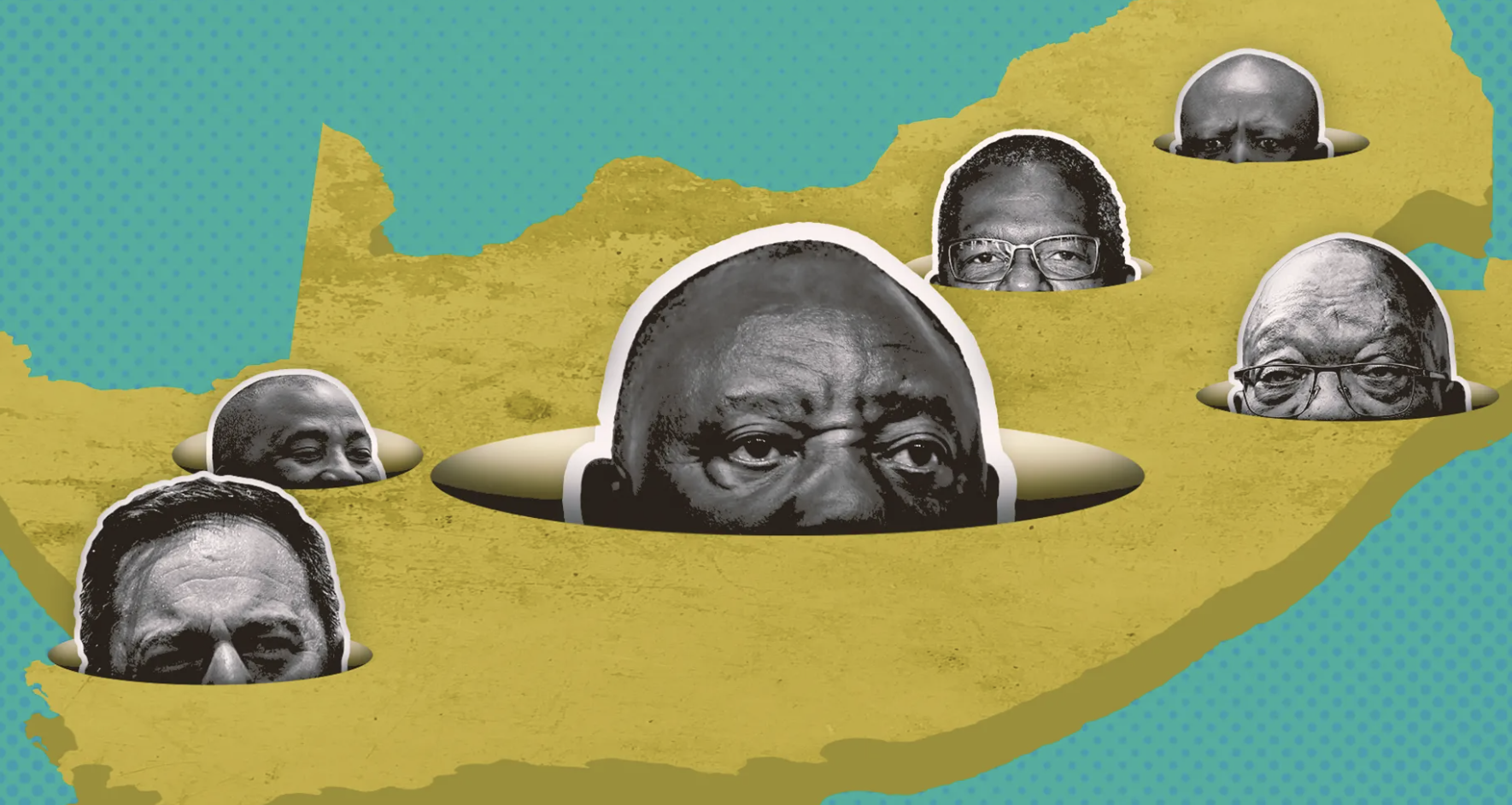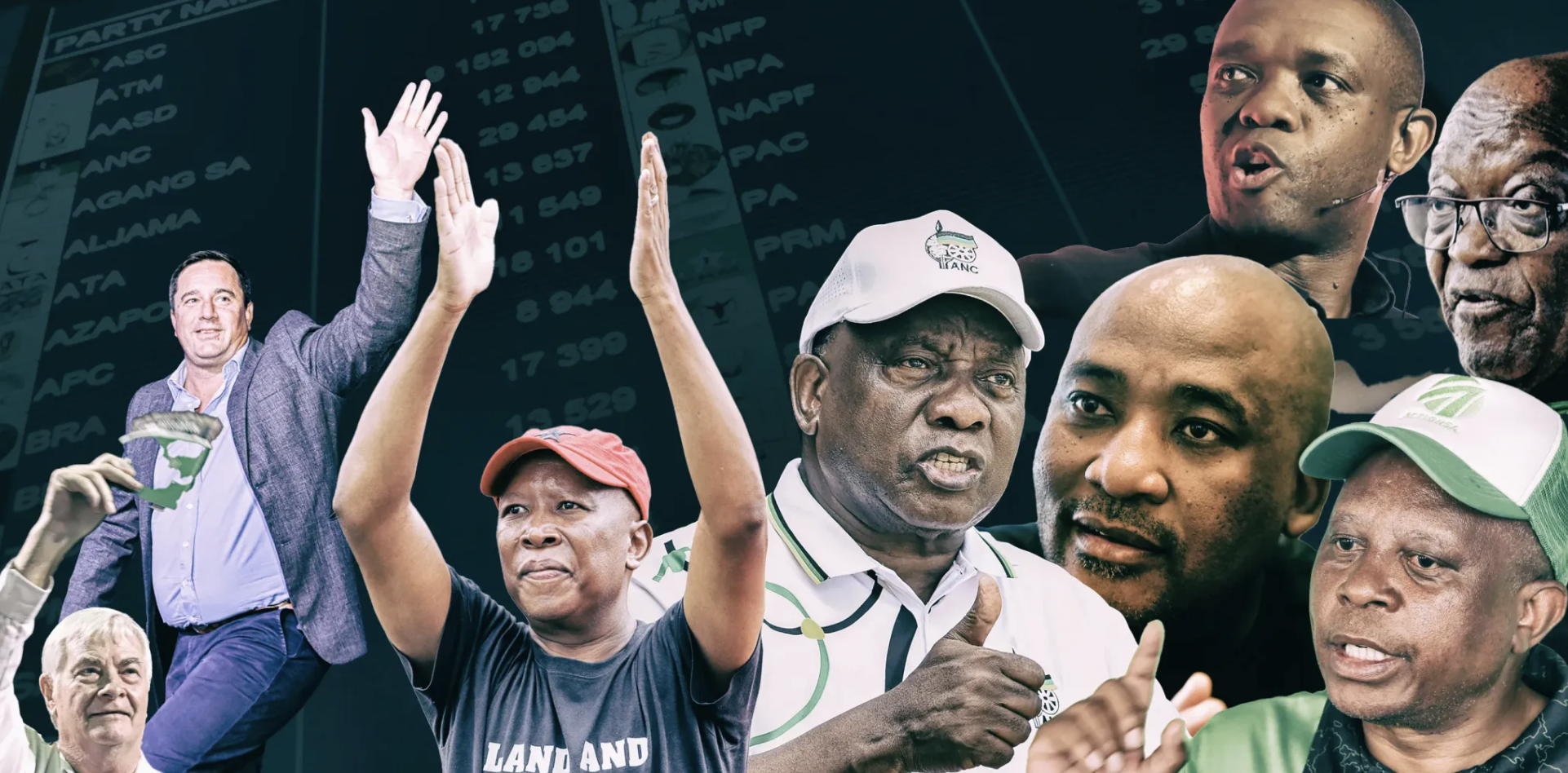News
GNU’s Job is to Take SA Forward, Not Solve ANC’s Internal Problems
He’s so vain, we bet he thinks this country’s about him. The thought of becoming, like Narendra Modi, ‘just another politician cut to size by the people’ does not sit well with President Ramaphosa, who imagines himself as a latter-day Mandela and South Africa’s saviour.

Director, The Brenthurst Foundation

Research Director, The Brenthurst Foundation

President Cyril Ramaphosa’s call for a “government of national unity” is based on a false premise. It assumes that the ANC’s fall to 40% of the vote in the 29 May election represents a crisis for the country that must be solved by an act of national unity.
Ramaphosa put it this way: “In establishing a government of national unity, we will be drawing on an experience with which South Africans are familiar and which served our country well at a time of great difficulty.”
Yes, there are a lot of politicians who will be out of work, but they will be replaced by others from other parties. There will be a lot of bleeding in certain sectors of business and high finance which have lazily cultivated the ANC elite for decades in exchange for favours. Bless them. But is this really a time of “great difficulty”?
Instead of casting the ANC’s vanishing electoral support as a crisis, we ought to be celebrating the maturation of democracy and the fact that voters with diverse agendas have taken control and punished failure. The ANC ought to be celebrating the growth of the middle class it played no small part in creating even if this means that the old Struggle shibboleths are being set aside by more immediate concerns such as the cost of living and the decline in basic service delivery.
Far from entering a state of crisis, the country is experiencing a sense of relief at the prospect of a change from the stumbling governance of the last 30 years, whatever form that might ultimately take.
Governments of national unity are formed at times of war, national crisis or political transition, as was the case in South Africa in 1994. While the ANC may be experiencing a crisis, it is more than a little narcissistic of it to believe this means the country is in crisis. This attempt to cement a mythology tying together party, state and nation is a well-worn path trod by liberation movements losing their grip on power.
As an editorial in The Economist put it: “Meetings of the African National Congress (ANC) are a mix of materialism and narcissism. The fancy SUVs parked outside any gathering hint at the spoils of office enjoyed by South Africa’s ruling party. Inside there will be a self-indulgent atmosphere: regalia and songs that hark back to the anti-apartheid struggle; discussion about the meaning of transformation, liberation, revolution and renewal. There are few things that the ANC enjoys more than talking about the ANC. There is enough navel-gazing to require an army of chiropractors.”
A striking analogue is India, where Narendra Modi’s BJP just lost its majority in India’s election. He is not calling for a “government of national unity”, but rather cobbling together a coalition to get him over 50%. This is familiar territory for India and has often occurred since the Congress party first lost its majority in 1977.
As the political commentator Pratap Bhanu Mehta put it: “At the very least, the result pricks the bubble of Prime Minister Modi’s authority. He made this election about himself. Today, he is just another politician, cut to size by the people.”
Victim of hubris
Unlike the ANC, which appears to be the victim of hubris (ignoring the warning from almost every poll and shooting the messenger in the process), and an absence of credible internal polling, Modi’s BJP formed an alliance ahead of the election, making coalition formation a relative walk in the park.
By contrast, the ANC took an imperious position. It drank its own Kool-Aid — and that supplied by a swarm of commentators who also ignored polling and believed it would, at worst, come in just below 50%. It would then cherry-pick some ineffectual but ambitious small parties it could dominate to take it over the top and the whole patronage edifice would endure.
When this didn’t materialise, the ANC was, to use the well-worn term, “shocked”.
But the thought of becoming, like Modi, “just another politician, cut to size by the people” has not sat well with Ramaphosa, who imagines himself as a latter-day Mandela and the country’s saviour. However, he lacks consistency and Mandela’s willingness to do unpopular things in the national interest.
Shortly after the result was issued, he used the Mandela playbook, saying the election showed that “our democracy is strong, that our democracy is robust and that our democracy is enduring”. A week later, he was selling the idea that the nation was at a moment of “great difficulty” and needed to be rescued by a government of national unity.

Which is it, Mr President, hope or doom?
The government of national unity concept allows Ramaphosa to do three things: He avoids having to show leadership and make a serious political choice — to go with the populist left or to pivot to the centre; he gets to project himself as a man mediating a crisis, albeit self-made; and he creates a government whose other components will be at war with each other, strengthening his party’s position.
What is really needed is for the President to lead his party into a coalition that he believes will take the country forward rather than a solution which will save the ANC’s blushes. This time around, the ANC would be wise not to ignore polling — unless it is happy to continue its slide to electoral oblivion. South Africans have made their preferences for a coalition arrangement clear. As The Brenthurst Foundation’s snap poll taken just after the election result came out highlights, twice as many South Africans prefer an ANC-DA or ANC-MPC coalition over the next most popular, one between the ANC and MK. An ANC-EFF coalition is favoured by just 11% of respondents.
Taking the country forward means accelerating inclusive economic growth to create jobs on a large scale, sorting out state-owned enterprises and cities to bring about the delivery of sufficient electricity and water, and making the country safer and free from corruption.
There are no shortcuts. Pretending that this moment is all about the ANC, misses the point.
This article originally appeared on the Daily Maverick.

